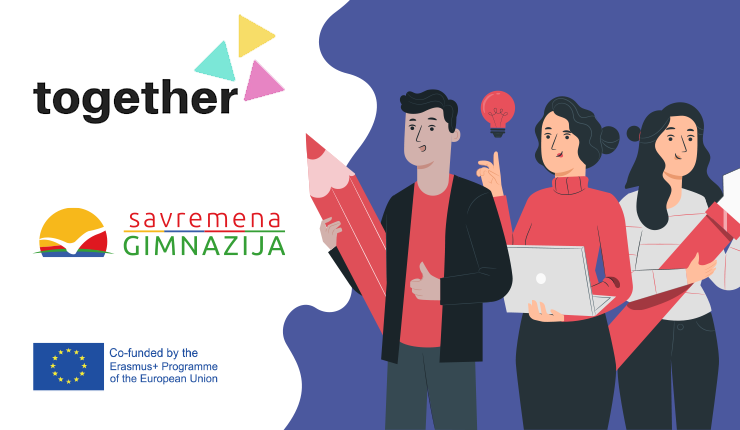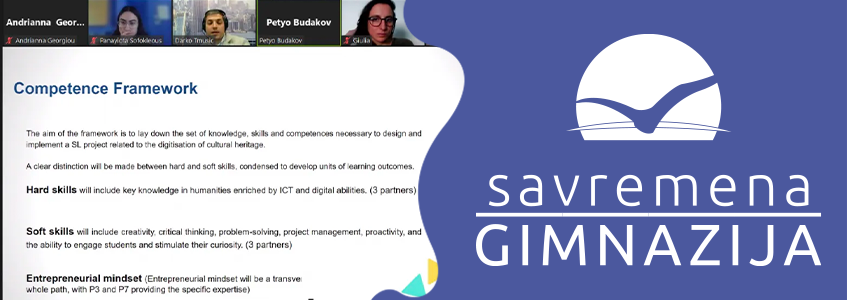
During the past month, the Teacher's Handbook and the Competency Framework for secondary school teachers in the field of humanities were completed, which will guide them in the direction of designing and implementing the teaching inspired by service learning (Service Learning – SL). The initiatives are related to the promotion and digitisation of local cultural heritage in a creative way through digital tools. The manual is a combination of theory and practical examples.
Our teachers from Savremena Gimnazija – Darko Tmušić, Natalija Stanković and Milica Aleksić designed the concept of the Handbook, which is the result of the joint work of partners from Germany, Portugal, Italy and Cyprus, and they led its development.

In the next phase of the project, the Handbook will be transformed into a Digital Creative Online Academy for Teachers.
The Handbook will be an important methodological tool for teachers who want to deal with the concept of SL and will provide full support during the entire process of its implementation – from planning to assessment.
The Digital Academy will be an open online environment that will help secondary school teachers and administrators to put the learning path previously outlined in the Handbook into practice.
The Academy will also be a repository of complementary teaching resources (Toolbox), such as suggestions for teaching activities, project concepts and strategies, templates, assessment sheets and digital resources, delivered in various formats. Gamification elements will also be adopted to improve student engagement.
What is Service Learning
Service Learning (SL) involves connecting learning objectives, students and the real needs of the community and involves transferring learning from classrooms to real life. SL differs from volunteering in that it is not a sporadic phenomenon, but rather a systematic study included in the school's curriculum.
Through the Erasmus+ project "TOGETHER", we started with the needs of the community for the digital promotion of cultural heritage, on the basis of which the connection with the curriculum was then observed. This teaching framework and handbook were successfully implemented by Darko Tmušić, Natalija Stanković, Sanja Bogdanović and Milica Aleksić, our teachers from Savremena Gimnazija, leading other partners through this new methodology which is yet to be created.
Since the service learning programme is characterised by a high transfer of students' knowledge and competencies, we expect that through this methodology our students will learn a lot about their own cultural heritage and, at the same time, help the community (when we say community, we mean the community in which the students live).

















